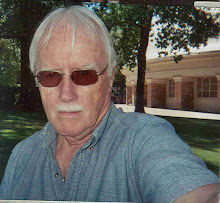Merkley's quotes. Yes these are actually here. Everyone has them but no one sees how important they are like Merkley does. It's trivia. But you know what? Trivia makes it, so Merkley records them.
"I can point you to some people you could talk to about getting a job," says Wm. G. Dyer to me and he's Dean of BYU's Grad. School of Business, as a good cousin would.
"Is this going down?" It was Hiram Fong U.S. Senator asking Merkley about the elevator's direction, that he was on when the door opened, in Honolulu.
"Why don't you come to Rexburg and visit?" asks cousin Sybil Ferguson founder of Diet Center.
"Enjoyed your program," writes Buddy Greco on a card after listening to a late jazz program Merkley was announcing on KSL in the early sixties and Greco's in a car crossing Wyoming in the dead of night.
"Merkley you are a very persistent fellow; you will make it; you will go places"---Nat "King" Cole
"Merkley...with every good wish"---N. Eldon Tanner in a book he gave me.
"He's a disgrace"---quip from a student who got a failing "E" grade in Merkley's 14 week acknowledged snap course on public speaking which the student, 7/8 asleep, attended 6 weeks.
"I'm a singer"--said Anita O'Day after I asked her what it is that she does.
"That was great fun riding a horse into the York Hotel...but I did"---Woody Strode who played the King of Ethiopia in the Ten Commandments, telling me at James Edwards' house in LA what it was like winning the Grey Cup for Calgary in 1948.
"Thanks for the dinner Brother Merkley,"---said Elder Verl Osmond, Donny & Marie's bro after he was a guest for dinner.
"Mind if I smoke?"---Rene LeVesque later Quebec Premier asking Merkley if he could light up in a small stuffy conference room at the Univ. of Saskatchewan.
"'It's green"-- Lowell Thomas, friend of Lawrence of Arabia & CBS commentator noting the traffic light as he and Merkley crossed N. Temple walking south on State Street in Salt Lake City
"Disc jockey huh?"---Ella Fitzgerald at the Hollywood Bowl questioning Merkley's dubious status.
"Nice to meet you"---says R. M. Nixon to Merkley after a speech in Hilo in 1960.
"'See you man," Jim Pike of the Lettermen says as Merkley leaves for a mission in Hawaii in the late '50's.
"Thank you very much," DeeDee Corradini Salt Lake City Mayor who brought the 2002 Olympics, upon hearing Merkley say she was buff.
"What do you think?" Merrill Bateman asking me to say something when I really didn't know what to say, as usual, in a committee meeting, no one knowing he'd be the next president of BYU while Steve Covey looked on snickering.
"So where should we go?" Lani Kai (Lani Woodd) friend, songwriter, co-star actor with Gardner McKay in TV's "Adventures in Paradise" and Woody Strodes step-son asks Merkley as they sit in Woodd's '58 Thunderbird on Sunset Blvd. in front of the Seawitch.
"Is this going down?" It was Hiram Fong U.S. Senator asking Merkley about the elevator's direction, that he was on when the door opened, in Honolulu.
"Why don't you come to Rexburg and visit?" asks cousin Sybil Ferguson founder of Diet Center.
"Enjoyed your program," writes Buddy Greco on a card after listening to a late jazz program Merkley was announcing on KSL in the early sixties and Greco's in a car crossing Wyoming in the dead of night.
"Merkley you are a very persistent fellow; you will make it; you will go places"---Nat "King" Cole
"Merkley...with every good wish"---N. Eldon Tanner in a book he gave me.
"He's a disgrace"---quip from a student who got a failing "E" grade in Merkley's 14 week acknowledged snap course on public speaking which the student, 7/8 asleep, attended 6 weeks.
"I'm a singer"--said Anita O'Day after I asked her what it is that she does.
"That was great fun riding a horse into the York Hotel...but I did"---Woody Strode who played the King of Ethiopia in the Ten Commandments, telling me at James Edwards' house in LA what it was like winning the Grey Cup for Calgary in 1948.
"Thanks for the dinner Brother Merkley,"---said Elder Verl Osmond, Donny & Marie's bro after he was a guest for dinner.
"Mind if I smoke?"---Rene LeVesque later Quebec Premier asking Merkley if he could light up in a small stuffy conference room at the Univ. of Saskatchewan.
"'It's green"-- Lowell Thomas, friend of Lawrence of Arabia & CBS commentator noting the traffic light as he and Merkley crossed N. Temple walking south on State Street in Salt Lake City
"Disc jockey huh?"---Ella Fitzgerald at the Hollywood Bowl questioning Merkley's dubious status.
"Nice to meet you"---says R. M. Nixon to Merkley after a speech in Hilo in 1960.
"'See you man," Jim Pike of the Lettermen says as Merkley leaves for a mission in Hawaii in the late '50's.
"Thank you very much," DeeDee Corradini Salt Lake City Mayor who brought the 2002 Olympics, upon hearing Merkley say she was buff.
"What do you think?" Merrill Bateman asking me to say something when I really didn't know what to say, as usual, in a committee meeting, no one knowing he'd be the next president of BYU while Steve Covey looked on snickering.
"So where should we go?" Lani Kai (Lani Woodd) friend, songwriter, co-star actor with Gardner McKay in TV's "Adventures in Paradise" and Woody Strodes step-son asks Merkley as they sit in Woodd's '58 Thunderbird on Sunset Blvd. in front of the Seawitch.





